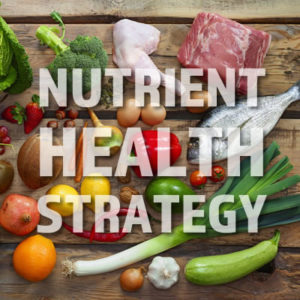Vitamin B2 - Riboflavin
Vitamin B2 is an important vitamin that also acts as an antioxidant within the body (preventing free radical damage, contributing to growth, protecting skin and eye health). Vitamin B2 is responsible for maintaining healthy blood cells, energy levels and a healthy metabolism. Foods high in vitamin B2 include milk, eggs, salmon, beef, spinach, asparagus, and broccoli.
This vitamin is an essential component of two major coenzymes (FMN and FAD). These coenzymes play major roles in energy production,; cellular function, growth, and development; and metabolism of fats, drugs and steroids. The conversion of the amino acid tryptophan to vitamin B3 requires FAD. Similarly, the conversion of vitamin B6 needs FMN. In addition, B2 helps maintain normal levels of homocysteine, an amino acid in the blood that needs to kept in check.
Because riboflavin is soluble in water, about twice as much riboflavin content is lost in cooking water when foods are boiled compared to steaming or microwaving.
Eye health
A study covering older Australian men found that those with the highest intake of vitamin B2 were 50% less likely to have cataracts than those with the lowest intake.

Cancer prevention
Due to the role riboflavin plays in preventing oxidative damage, it may also be connected to cancer prevention. Cancer is thought to be initiated by damage caused by oxygen forming free radicals. Sufficient intakes of riboflavin may help reduce free radicals and therefore cancer risk.
Migraine Headaches
There is some evidence that riboflavin may help treat or prevent migraine headaches. A high dose of the vitamin (under the care of a medical professional) has been shown to reduce the frequency of migraines.
Vitamin B2 supplementation
The RDA for men is 1.7mg. Supplementation is very safe, even at high doses. This may compensate for poor absorption. A higher dose of 3 mg per day can help to prevent cataracts. Higher doses up to 400 mg can be used to treat migraine headaches.
- B2 supplements have typically large dose quantities.
- B complex supplements contain all the B vitamins. Typically in large dose quantities.
- Multi-vitamins: centrum for men contains 4.6mg.
Most riboflavin is absorbed in the small intestine. The body absorbs little B2 from single doses above 27mg and stores only small amounts of riboflavin in the liver, heart and kidneys. When excess amounts are consumed, they are either not absorbed or the small amount that is absorbed is excreted in urine
Vitamin B2 Testing
You should not supplement 2 days before the test. It is a simple blood test.
Vitamin B2 deficiency can be more common in people who:
- Have kidney or heart failure.
- Are alcoholics.
- Have cirrhosis.
- Have hyperthyroidism.
- Are taking anticonvulsants or corticosteroids.
- Have gut disorders.
Vitamin B2 Foods
Beef liver (100g): 3.3mg
Nutritional yeast (1 tsp): 2mg
Fortified cereals: 1.7mg
Yoghurt: 0.6 mg
Milk (1 cup 2%): 0.5mg
Beef (100g): 0.5mg
Almonds (30g): 0.3mg
Cheese (100g): 0.3mg
Clams (100g): 0.5mg
Chicken (100g): 0.2mg
Salmon (wild 100g): 0.3mg
Eggs (1 large): 0.2mg
Sources: ncbi.nlm.nih.gov, drweil.com, nutri-facts.org

